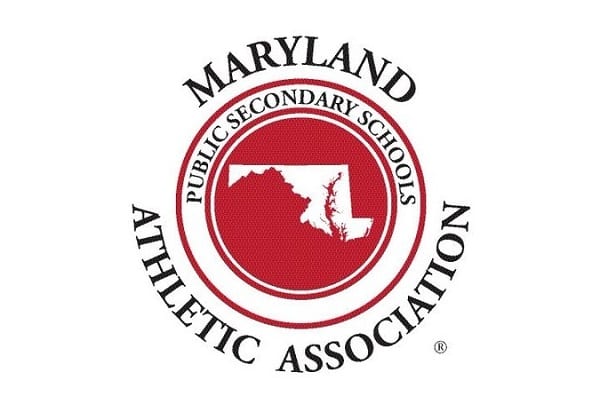Help for coaches on the job hunt
Whether you are looking to move from an assistant’s position to the head job or are interested in coaching in a larger, more competitive setting, you need to dust off your résumé before applying. After sending your application to the school, you sit back and wait to be called for an interview. On the surface, it seems so simple and straight forward. But is it?
 There are several mistakes you should avoid and a few suggestions that will enhance your chances of not only getting invited for an interview but may help you land the position. It’s helpful to understand the perspective of the athletic director or principal who is reviewing your materials and responsible for hiring. Therefore, it’s important to look examine the three most critical elements: the résumé, cover letter and interview.
There are several mistakes you should avoid and a few suggestions that will enhance your chances of not only getting invited for an interview but may help you land the position. It’s helpful to understand the perspective of the athletic director or principal who is reviewing your materials and responsible for hiring. Therefore, it’s important to look examine the three most critical elements: the résumé, cover letter and interview.
The résumé
This is a brief, concise presentation of your education, experience and skills. It’s a document that administrators use to determine who meets the requirements and is granted an interview.Organize your résumé with headings. A disorganized, haphazard document does not improve your chances, and an athletic administrator gets their first look at your organizational skills by reading this document. Your résumé should be presented in a logical and simple manner.
With respect to headings, start with your education and always list your highest degree first. Follow with your teaching and coaching experience as separate sections.
Don’t use fluff, overstate or exaggerate your experience. While you want to impress the person reading your materials, remember that this individual has been around and knows that new coaches won’t have an extensive background. And don’t fill your résumé with insignificant details.
You may want to include details like summer camps you’ve supervised. This is fine to demonstrate that you are trying to expand your background, but don’t list every camp that you’ve attended. This is overkill.
Remember to use correct titles for previous positions. Don’t list that you were the head junior varsity coach unless there was more than one person connected to this level of team. Normally, there would be one coach, making you the only junior varsity coach.
The cover letter
Even with the increasing use of email, text messaging and other easy forms of communication, this document is critical. Its purpose is to quickly indicate that you are interested in the vacancy and to briefly highlight who you are. If you aren’t effective with this effort, an administrator may not spend much time even looking at your résumé.
Coaches must use the correct title and spelling of the person responsible for reviewing the application. This type of error might immediately disqualify you from consideration.
Make sure that your letter is well-written. This means clear, concise sentences and paragraphs that are devoid of grammatical and typographical mistakes. Use spell check to detect misspelled words and ask another person to proof your draft. You are trying to make a great impression and careless oversights don’t help make your case.
Closely examine the job posting and make sure that you specifically address qualities and responsibilities that are listed. Mention that you have the basic experience and skills that the school is looking for and indicate how you learned of the opening.
Always close by thanking the individual for their time and consideration. Common courtesy goes a long way and shouldn’t be overlooked.
The interview
This is your opportunity to answer questions about your background and personal qualities with the manager or committee responsible for hiring. In either event, this is your best chance to set yourself apart from other candidates and to convince them that you’re the best person for the job.
Be prepared to answer basic, logical questions. These would include your coaching philosophy, how you would handle sportsmanship issues, your ability to communicate and work within the mission and procedures of the school or athletic department. However, the most important aspect is to be able to answer these questions in a clear, understandable manner.
Never belittle or berate fellow coaches or former supervisors. The person conducting the interview may know your former colleague, and this type of approach creates a terrible impression. Why would an athletic director hire an individual who might cause similar problems or disruptions within their program? With a pool of qualified candidates, there is no reason to hire a potential problem.
Thoroughly answer all questions, but don’t ramble. A concise, specific answer works best. Candidates sometimes provide too much information, and the extraneous offerings may raise red flags or create doubts.
You must also understand the basic concept of education-based athletics and be able to explain how you fit into this philosophical approach. While there may be some athletic administrators who don’t embrace the precepts of this concept, there are many who do. Therefore, your grasp of this concept and the role that you play can be critical.
Don’t hesitate to ask the person conducting the interview to restate a question if you do not understand it. You can’t provide a good answer if you don’t know what’s being asked, and the interviewer will appreciate your honesty.
Not all interviews end with a job offer, so try to learn something. After it’s over — while sitting in your car or grabbing lunch — jot down the questions and main points from your responses. Use both the questions and your answers to analyze how you performed, and use this information to prepare for your next opportunity.
Always finish by sending an email or note thanking the interviewer for their time and consideration, and state that it was a pleasure to meet them. This is common courtesy and you never know when your paths may cross again in the future.
Since résumés, cover letters and interviews are the key ingredients in securing a new position, you should avoid mistakes at all costs. The key is investing time, effort, preparation and seek advice.
David Hoch, CMAA, has 16 years of experience as a high school athletic director and served for 12 years as the executive director of the Maryland State Coaches Association. In 2000, he was named Athletic Director of the Year by the Maryland State Athletic Directors Association.





